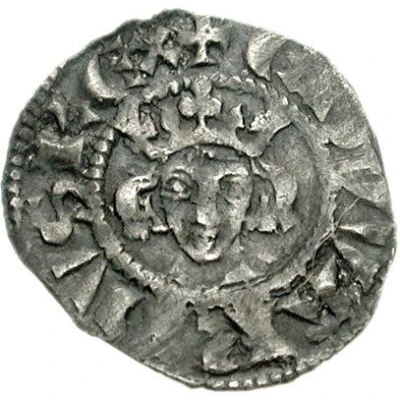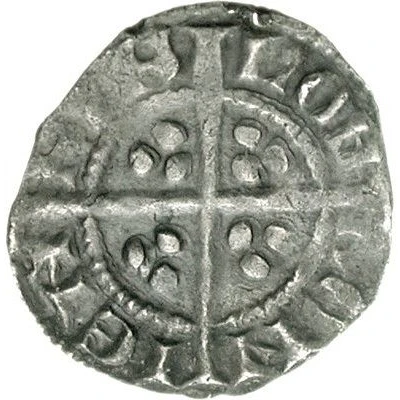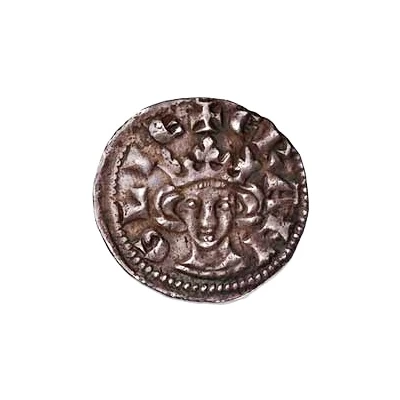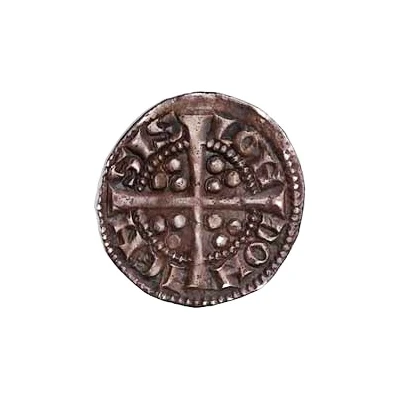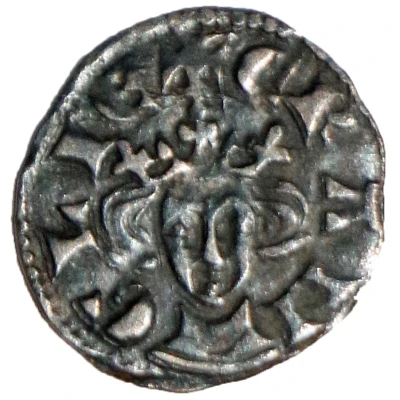
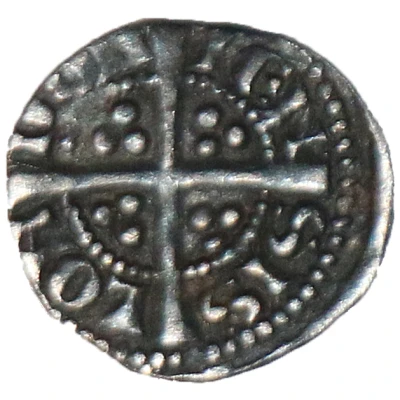

1 Farthing - Edward I Class 3de ND
| Silver (.925) | 0.32 g | 11 mm |
| Issuer | England (United Kingdom, British Overseas Territories and Crown Dependencies) |
|---|---|
| King | Edward I (1272-1307) |
| Type | Standard circulation coin |
| Years | 1280-1281 |
| Value | 1 Farthing (1⁄960) |
| Currency | Pound sterling (1158-1970) |
| Composition | Silver (.925) |
| Weight | 0.32 g |
| Diameter | 11 mm |
| Shape | Round (irregular) |
| Technique | Hammered |
| Orientation | Variable alignment ↺ |
| Demonetized | Yes |
| Updated | 2024-10-08 |
| Numista | N#212196 |
|---|---|
| Rarity index | 94% |
Reverse
Long cross pattée, trefoil of pellets in angles, mint name around.
Script: Latin (uncial)
Lettering: LON DON IEN SIS
Lettering (regular font): LON DON IEN SIS
Translation: London
Comment
House of Plantagenet (1154-1399), Edward I (1272-1307), New coinage (from 1279), Class 3de silver farthing.Struck at the London, Bristol (Sp#1452), Lincoln (Sp#1453), Newcastle (Sp#1453A) and York (Sp#1454) mints, c.1280-81.
New coinage: From this type onwards the coins are of sterling silver, and slightly smaller than their alloyed predecessors.
Class 3d and Class 3e differ only in their mints, so are often designated 3de.
* Crown note: a few London coins have Crown E, which is distinguishable in having very large arrowheads as intermediate ornaments.
Interesting fact
One interesting fact about the 1 Farthing coin from England, made of Silver (.925) and weighing 0.32g, is that it was issued during the reign of King Edward I, also known as Edward Longshanks, who ruled from 1272 to 1307. This coin was part of a new coinage system introduced by the King to replace the older silver pennies, and it was designed to be smaller and lighter than previous coins, making it more practical for everyday transactions. Despite its small size, the 1 Farthing coin was an important denomination in the medieval economy and was widely used throughout England and its territories.
